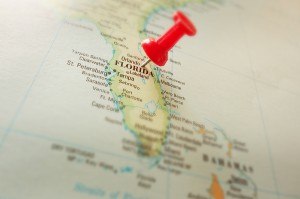 With Florida about to enter peak hurricane season, a state insurance association representing more than a dozen insurers in Florida is hitting back against a recent report from ratings agency Weiss Ratings that identified 10 Florida-based insurers as “weak.”
With Florida about to enter peak hurricane season, a state insurance association representing more than a dozen insurers in Florida is hitting back against a recent report from ratings agency Weiss Ratings that identified 10 Florida-based insurers as “weak.”
The insurer trade group, the Florida Property & Casualty Association (FPCA), dsiputes the “weak” assessments by Weiss and defending the marketplace in general, saying it does not believe Weiss is a legitimate ratings agency.
“Florida homeowners should beware of a recent press release by Weiss Ratings that contains misleading information about the financial stability of our state’s homeowner’s insurance companies. This is simply not the truth,” the Florida Property & Casualty Association (FPCA) said in a statement.
State insurance officials did not respond to individual ratings assertions by Weiss but did downplay the effect of open Hurricane Irma claims that Weiss cites as a concern.
Weiss Ratings has defended its assessments of the 10 insurers as weak, claiming other rating agencies give some insurers high ratings they don’t deserve.
In the June 14 press release that upset FPCA, Weiss highlighted what it called the 10 strongest and weakest providers of homeowners insurance doing business in Florida.
The ratings agency, which analyzes and rates 2,300 property and casualty insurers in the United States, said it uses annual and quarterly financial statements filed with state insurance commissioners to complete an analysis of hundreds of factors that are synthesized into a series of indexes that are then used to arrive at a company’s letter grade rating.
Based on this criteria, Weiss’s statement identified 10 carriers with more that $2.5 million in annual homeowners premiums in the state to which it gave a grade of D+ or lower, as of Dec. 31, 2017:
| Florida Homeowner Insurers | Weiss Safety Rating |
Homeowner Premiums $ Millions |
| Anchor P&C Insurance Co. | D | 53.7 |
| Edison Insurance Co. | D+ | 68.2 |
| Florida Specialty Insurance Co | D | 75.8 |
| Olympus Insurance Co. | D+ | 121.5 |
| People’s Trust Insurance Co. | D+ | 212.2 |
| Prepared Insurance Co. | D | 51.5 |
| Tower Hill Preferred Insurance Co. | D | 104.2 |
| Tower Hill Prime Insurance Co. | D | 220.1 |
| Universal P&C Insurance Co. | D | 846.1 |
| White Pine Insurance Co. | D+ | 6.8 |
Weiss warned consumers to remain vigilant of these 10 insurers with “weaker finances,” which combined have more than $1.7 billion in homeowners premium in Florida.
FPCA, which represents 15 Florida insurers, including Edison Insurance and People’s Trust, disputed the Weiss ratings, saying in its release that Florida home insurers must pass a rigorous catastrophe reinsurance stress test by the Florida Office of Insurance Regulation (OIR), as well as vertical and horizontal reinsurance reviews by what it calls “credible rating agencies.”
FPCA alleges that Weiss Ratings opinions are “not recognized by the insurance industry because they fail to consider the rigorous reinsurance programs purchased by insurance carriers on an annual basis,” FPCA said.
“Our leadership of and members of the FPCA do not believe Weiss is a legitimate ratings agency. To the best of our knowledge, their ratings aren’t recognized by the secondary mortgage market and they don’t speak with the insurance companies they claim to rate. A.M. Best, S&P, Moody’s and Demotech all do,” said FPCA Chairman Roger Desjadon.
Each of the top 10 companies Weiss assigned low ratings to have Financial Stability Ratings (FSR) of ‘A’ or better by Ohio-based financial analysis firm Demotech, except one – White Pine Insurance Co., which is rated B+ by A.M. Best only. In addition to its ‘A’ rating from Demotech, Tower Hill Prime Insurance Co. also carries an A- rating from Best with a negative ratings implication, as of Sept. 2017. Best does not rate the other eight companies.
In March, Demotech affirmed the ‘A’ ratings of Anchor Property & Casualty, Florida Specialty, People’s Trust, Prepared Insurance, Tower Hill Prime, Tower Hill Preferred and Universal P&C after warning earlier in the year that these companies could face downgrades if they didn’t take what it deemed to be necessary actions to maintain their ratings.
Demotech cited ongoing issues in Florida, including AOB litigation and the state’s judiciary climate, as its reasons for not affirming the 16 insurers back in February.
FPCA said in its statement that homeowners in Florida should “rest assured that Florida home insurance companies are financially strong, heavily reinsured, and committed to serving their customers.”
“The number and financial strength of insurers operating in Florida have improved markedly since the 1990s,” said William Stander, executive director of the FPCA. “Today, the market is much healthier, competitive and homegrown. This positive change is the result of local entrepreneurship in cooperation with the state’s legislature, governor, cabinet, Florida Office of Insurance Regulation, and Florida’s Insurance Commissioner.”
In response to FPCA’s statement, Weiss responded with its own statement to Insurance Journal defending its ratings announcement, saying it “sticks by its recommendation that homeowners favor insurance companies that truly merit their high ratings.”
“We believe that assigning an A rating to a company with below-average financial strength is tantamount to a consumer deception,” says Weiss Ratings founder Martin D. Weiss. “If that rating agency is paid fees by the insurer for the ratings, and if this cozy arrangement is defended by trade associations or regulators, we fear that these institutions could also be parties to that deception.”
Weiss also said it “thoroughly” reviews reinsurance data but that reinsurance alone is “often insufficient to prevent the failure of undercapitalized and poorly run insurers, let alone ensure prompt payment of claims.”
Weiss noted the nearly 70,000 Hurricane Irma claims still open as of June 12, according to OIR data, and the failure of one Florida insurer – Sawgrass Mutual.
“Months prior to the failure of Sawgrass Mutual Insurance Co., Weiss assigned it a D+ (weak) rating and retained that warning in place until the day it failed,” Weiss said. “In addition, Weiss gave a D+ rating to Prepared Insurance Co., which was subsequently taken over. Although this company did not fail thanks to the takeover, we feel that our rating provided an appropriate warning to consumers of the risks.”
Weiss said the open Hurricane Irma claims and Sawgrass Mutual failure raise “serious questions for consumers and regulators,” such as why they occurred despite the ratings deemed acceptable by Freddie Mac and Fannie May?
Weiss also argued that its ratings are “100 percent independent” which it alleges is not the case with the Demotech and A.M. Best programs which insurers must pay to participate in. Weiss said it doesn’t accept compensation from the companies it rates, with its sole revenue source being from the sale of ratings and research to consumers, investors and other end users.
“What conflicts of interests are created by virtue of the fact that FPCA members, like other insurance companies, pay large fees to their rating agencies for their ratings?”
FPCA called Weiss’ claim about open Irma claims “misleading.”
“In reality, 91.5% of residential property claims have already been adjusted and paid, according to filings received by [OIR] as of June 12, 2018,” FPCA said.
In a statement to Insurance Journal, the Florida Office of Insurance Regulation saidthat the number of open Irma claims “reflects the nature of the adjustment process as Florida continues to recover from Hurricane Irma,” and directed consumers seeking assistance with any claims to contact the Florida CFO’s office.
“We continue to monitor companies as they address their Irma claims, both from a financial standpoint and an operational standpoint. OIR does not see any connection between the number of open claims and the financial strength of insurers at this time. OIR will continue to monitor the financial strength of each insurer individually,” said Erin VanSickle, OIR deputy chief of staff.
*This story appeared previously in our sister publication Insurance Journal.





















 Premium Slowdown, Inflation Factors to Lead to Higher P/C Combined Ratio: AM Best
Premium Slowdown, Inflation Factors to Lead to Higher P/C Combined Ratio: AM Best  AI Claim Assistant Now Taking Auto Damage Claims Calls at Travelers
AI Claim Assistant Now Taking Auto Damage Claims Calls at Travelers  High Court Ruling on Trump Tariffs to ‘Ease Uncertainty,’ Says AM Best
High Court Ruling on Trump Tariffs to ‘Ease Uncertainty,’ Says AM Best  Why Claims AI Build vs. Buy Decisions So Often Miss the Mark
Why Claims AI Build vs. Buy Decisions So Often Miss the Mark 


